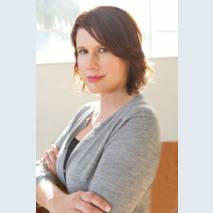 … With great big sweeping Venn diagrams to connect the myriad of people and organisations that contribute to the life-cycle of a novel. With detailed characterisations and in-depth analyses of the interplay between each Venn bubble, with a structured flow and a bit of conflict to keep it all moving nicely along. Novelists see the world (of publishing) as a fascinating place that might be much akin to the worlds of their books.
… With great big sweeping Venn diagrams to connect the myriad of people and organisations that contribute to the life-cycle of a novel. With detailed characterisations and in-depth analyses of the interplay between each Venn bubble, with a structured flow and a bit of conflict to keep it all moving nicely along. Novelists see the world (of publishing) as a fascinating place that might be much akin to the worlds of their books.
There are four kinds of people in the world, none of whom a novelist is particularly enamoured with:
- Gatekeepers. Agents, publishers, booksellers, the media, festivals, and prizes.
- Rivals. Other writers. (Note: ‘rivals’ and ‘friends’ are by no means mutually exclusive. Or so they would have us believe.)
- Necessary Evils. The public, online reviewers, book clubs, festival audiences, etc.
- Enemies. Yourself. Money. The world at large.
And yet novelists have far more to worry about than these frustrating gnats that surround them. Worries such as publicity, for one, which is an increasingly important aspect of the novelist’s life. It is no longer an isolated art; writers need to be actively engaged with the world through social media and self-promotion. They’re constantly bombarded with people asking questions or favours. They get e-mails by the giga-load.
Then there’s the insecurity. Writers are a ‘whirlwind of insecurity’. Will their next book be their last? Will it be a failure? It’s a life of unstable income and of second jobs – fixing, ghost writing, journalism, anything to keep writing.
It takes a hell of a lot more than talent to get published. It takes persistence and discipline, luck, ego (a.k.a. ‘drive’) and often a very thick skin. It takes a healthy aversion to reading too many reviews and the ability to ignore the call of the market (or risk becoming a hack). A good pen and a few nice turns isn’t enough anymore.
So all this begs the question… why? Why would anyone choose to take on such a career?
‘It’s not a career, it’s a vocation’, Morris said, ‘you should be doing it because you would be miserable doing anything else’.
See more from Paula Morris at her website.
-Talis S Archdeacon
